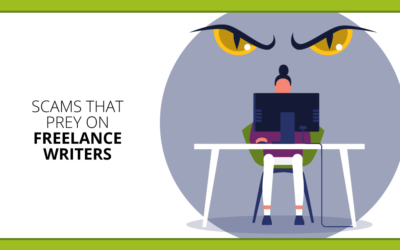
So I started exploring micro-niches – topics that are very narrowly focused but related to larger niches.
That exploration led me to launch The Hirsutism Hub about a health condition where abnormal body hair grows on women, usually associated with more well-known conditions like diabetes, polycystic ovary syndrome (PCOS), and obesity.
My site launched in 2011. Today, it averages more than 20,000 viewers monthly and has been mentioned in New York Magazine, Yahoo Style, and Women’s Health. It’s also given me the credibility to write about health topics for other sites and brings in some monthly side income.
Here’s how a micro-niche can work for you:
Become an authority figure fast
If you’re one of few with a micro-niche blog, you’ll find it’s easy to top Google searches for your micro-niche.
You’ll get more traffic and backlinks quicker. And you’ll notice readers reaching out to you with comments similar to this: “OMG! There’s no information anywhere online about this. Thank you for creating this website!”
You may also get mainstream media mentions, which adds to your offline authority and helps you land paid writing work related to your micro-niche. Since launching my site, I’ve earned money writing articles for websites on beauty and women’s health issues. They haven’t been the highest payers, but they are helping me build my portfolio so I can go after bigger, better-paying writing gigs.
Requires little effort
While you don’t want to place any gobbledygook on your site, the good news is that a micro-niche blog often doesn’t require much research. It’s understood that people who write in micro-niches are well versed in the topic before they even become writers.
For example, when I demonstrate hair removal techniques on my YouTube channel, it requires no previous research to get in front of my camera and start yapping.
Competitors are few for a micro-niche blog
Having little to no competition allows you a lot of flexibility. You can try out new keywords, change your website template, reposition AdSense ads, or even screw your website up completely without the fear of competition replacing you.
I’ve taken my site down for days, and it was still the top “hirsutism blog” on a Google search. Of course, as long as I am writing compelling content for my readers on a consistent basis, competitors will have to work pretty darn hard to earn their place on Google searches! Because I’m ranked first on my keywords, I make most of the money from my blog through my Google ads.
Recently, I’ve started converting my visitors to subscribers who get subscriber-only emails and who I ask for ideas of the content they’d like to cover. These folks may be a source of future side income as my list grows.
Guest blogging is easier
Guest blogging is one of the best ways to build online traffic and prestige regardless what your niche blog topic is. I make it a point to reach out to related websites and blogs routinely. One article for PCOSDiva got me a nearly 400% increase in web traffic!
Because unwanted hair is covered is many niches (health, beauty, style, etc.), my guest blogging options are plentiful.
Micro-niches do require dedication. You’ll need to provide regular material to your growing audience to be taken seriously. You’ll also need know who your competition is so you can provide what they do not. For example, there are other hirsutism blogs, but they don’t tend to update their content as frequently as I do.
Of course, you shouldn’t always look at your fellow writers and bloggers as competition, even if you’re serving the same small group of people. You can work together to guest blog for each other, providing backlinks and access to each others’ audiences. This type of cooperation can help your site – and your freelance writing career – really take off!
Have you got a micro-niche interest you blog about? Tell us about it in the comments below.
Monica Leftwich hopes to one day make freelance writing her full time career. She’s an experienced technical writer but also writes about women’s health at The Hirsutism Hub.










